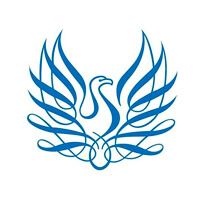fees waived
Building Surveying, BSc (Hons), with industry placement
Coventry University, United Kingdom
Subject ranking
UK / Guardian 2025 4th
UK / CUG 2024 17th
UK / Times 2025 17th
Costs
food & rentS$17.3K / year
Entry requirements
Scholarships
Unlimited quantity
Unlimited quantity
Unlimited quantity
Limited quantity
Information
Code
Intakes
Website (External)
Programmes
Information
Duration
2029
This course equips students with essential knowledge and skills for providing expert advice on building construction, maintenance, repair, and refurbishment, while ensuring compliance with statutory regulations. In light of the United Nations' projection of a global population reaching 9.7 billion by 2050, it emphasizes innovation and creativity to address challenges in space, sustainability, cost, and climate resilience. Building surveyors engage in multidisciplinary roles, from managing commercial developments and domestic extensions to conserving heritage properties and resolving disputes, drawing on fields like construction technology, legal compliance, and contract administration.Key benefits include access to a simulation centre and advanced technologies such as VR, 3D scanners, and drones, alongside strong employer links and opportunities for multidisciplinary learning in the first year. Students can pursue additional qualifications like BREEAM Accredited Graduate, with assessments encompassing exams, essays, projects, and presentations. The course is accredited by professional bodies, including the Royal Institution of Chartered Surveyors, preparing graduates for the industry.
This course has a common first year. The common first year enables you to work alongside students doing similar courses to you, to widen your knowledge and exposure to other subject areas and professions. You will have the opportunity to collaborate with other students, so you can share your insights and experience which will help you to develop and learn. If you discover an interest in a specific subject you have studied, upon successful completion of your first year, you could swap degrees with another course in your common first year (subject to meeting progression requirements). Common first year courses Architectural Technology BSc (Hons) Construction Project Management BSc (Hons) Quantity Surveying and Commercial Management BSc (Hons) Year One Modules Materials and Building Surveying Construction Technology and Environmental Sciences Spatial Design and Visual Communication Structural Analysis and Mathematics Civil Engineering Design Project Sustainable Environments Year Two In Year Two, you will continue to develop the skills and knowledge you’ve learnt. We do this by embedding the following four principles into the curriculum and developing your: Technical skills – digital fluency, backed with the right academic knowledge Study skills – to be an adaptive, independent and proactive learner Professional skills – to have the behaviour and abilities to succeed in your career Global awareness – the beliefs and abilities to be a resilient, confident and motivated global citizen Placement Year There’s no better way to find out what you love doing than trying it out for yourself, which is why a work placement* can often be beneficial. Work placements usually occur between your second and final year of study. They’re a great way to help you explore your potential career path and gain valuable work experience, whilst developing transferable skills for the future. If you choose to do a work placement year, you will pay a reduced tuition fee* of £1,250. For more information, please go to the fees and funding section. During this time you will receive guidance from your employer or partner institution, along with your assigned academic mentor who will ensure you have the support you need to complete your placement. Final Year Year three aims to bring you to the level to enter the world of work by consolidating your knowledge and skills from year one and two. We regularly review our course content, to make it relevant and current for the benefit of our students. For these reasons, course modules may be updated. Please visit the course page on the Coventry University website for full module information. *Please see the course page on the Coventry University website for details.
A local representative of Coventry University in Singapore is available online to assist you with enquiries about this course.

